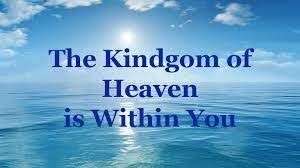The Voice of the Holy Spirit does not command, because It is incapable of arrogance. It does not demand, because It does not seek control. It does not overcome, because It does not attack. It merely reminds. It is compelling only because of what It reminds you of. It brings to your mind the other way, remaining quiet even in the midst of the turmoil you may make. The Voice for God is always quiet, because It speaks of peace. T-5.II.7: 1 - 7
A Course in Miracles . Foundation for Inner Peace. Kindle Edition.
The Holy Spirit speaks to us quietly, so quietly it is easy to overlook, ignore, deny, be oblivious. Most of us think the ego world which is an illusion is all there is. This belief contributes to depression, anxiety, resentment, grievance, and guilt. If a person wants peace, it would help to listen for the soft voice of Spirit.
In Unitarian Universalism we covenant together to affirm and promote the search for truth and meaning and we can add, peace. Where is truth and meaning and peace to be found? It is not in the world of the ego but rather in Spirit. The world of ego is the world of conditional love while the world of Spirit is unconditional love.
Today, it is suggested that we consider that we have a choice to listen to the temptations of the ego or the voice of Spirit. We can know the difference because ego will bring distress and Spirit will bring peace.






